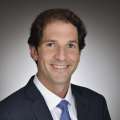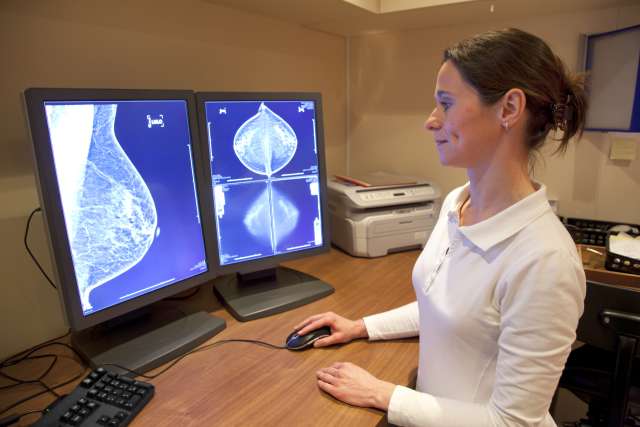Nicholas Bernthal, MD, took a circuitous route to orthopaedic surgery. After graduating from Princeton University as a member of the basketball team, Dr. Bernthal traded his gym bag for a duffel bag, moving to South Africa to work on the emerging HIV epidemic with the new post-apartheid government. It was there that he developed a passion for medicine, serving the underserved, and bringing teams together to solve big problems.
Twenty years later, in 2021, Dr. Bernthal was appointed as interim Orthopaedic Department chair at UCLA Health. While holding that position, Dr. Bernthal and his colleagues conceptualized, raised funds for, built and opened UCLA Health’s Center. The state-of-the-art facility is a combination teaching site and community hub offering patients living east and south of Westwood access to world-class orthopaedic care.
In November 2023, Dr. Bernthal was officially named chair and executive medical director of the Department of Orthopaedic Surgery. Here, he discusses the department’s recent accomplishments and plans for the future.
Can you talk about the department’s achievements during your time as interim chair?
Dr. Bernthal: When the former dean of the David Geffen School of Medicine at UCLA, Kelsey Martin, MD, asked me if I would consider this role, I knew that if I did it for two years and left the place far better than I found it, I could feel good about returning to my full-time practice and research that I love. So the goals had to inspire us. The first was to organize and formalize our EDI (Equity, Diversity and Inclusion) Community Engagement Program. The second was an operational rebuild, and, quite frankly, an economic one, as we had to rebound out of a sizable deficit that had accrued as elective procedures went down during the pandemic. And then the last one was resetting where the department was and is in terms of alignment with the health system and the school of medicine. With those three things as our northward compass, our department worked tirelessly over the last two years finding ways these goals could be synergistic. One of the prime examples is the downtown orthopaedic clinic. And for something to go from concept to opening in two years is just an astronomical pace.
What is the new clinic like?
Dr. Bernthal: It’s a beautiful space downtown. We wanted to make it a real destination center. It’s been very cool, because it really serves all of our pillars and our missions. We’ve partnered with two wonderful organizations downtown that support underserved high school kids. One of them is called and the other is . We’ve engaged with these two groups that are looking for ways to get kids from underserved communities involved early on with access and exposure to careers. Now they are the volunteers greeting patients; they are getting summer internship jobs, and we’ve gotten some of these jobs paid. It’s really coalescing the idea that a medical clinic can be more than just a provider of medical care. It can really be a tool for the community.
What are your visions for the department going forward?
Dr. Bernthal: Everything we do from here is with the timeline in mind that 2028 is bringing the Olympics and Paralympics to Los Angeles and really to UCLA, with our campus serving as the Olympic Village. Our belief is that 2028 is going to put the world spotlight on us and the Olympics and it puts an incredible focus on musculoskeletal care and musculoskeletal advancements. Our department, and really the health system as a whole, is really invested in leveraging that spotlight. One of the big-ticket items is to build on what we currently have — the broadest, most comprehensive sports medicine network in the United States. The Department of Orthopaedic Surgery at UCLA will make sure that we have deep expertise in all aspects of sports medicine – we will nurture and support the athlete in every patient. We already take care of top athletes, including the Lakers and Dodgers, but what we also do well is we specialize in so many of the other burgeoning fields of sports medicine. We have real expertise in the specifics of women’s athletics. We’ve got an incredible group in pediatric sports medicine. We’ve got folks who specialize in injuries sustained by adaptive athletes. We’ve got one of the best teams being built around biologics and preventive medicine in musculoskeletal care. Because, you know, the 70-year-old who hikes or walks or surfs is every bit as much an athlete as the UCLA football player. But the needs are different, and so real expertise is needed to provide state of the art care to our entire population.
This must be especially resonant for you as an athlete yourself.
Dr. Bernthal: I’ve always said that the best thing about orthopaedic oncology is that I get to wear both hats. I get to do what we all love so much, which is the curative cancer surgery – have a family trust me to remove a cancer in their child and then have the opportunity to go in and take it out – it’s the ultimate responsibility and one I am privileged to have every day. But once the tumor’s out, there’s a second half of every operation, which is about restoring physical function. That’s where you get to wear this orthopaedic hat and say … now you’ve got to rebuild the skeleton and musculoskeletal system so they can get back to life, get back to the things that are important to them. The days of evaluating your outcomes as “Did they beat the cancer or not” are behind us. The bar is higher now. We should be asking ourselves: “Did they beat the cancer or not, and did we restore them to the activities that they value? How does the patient feel about the life they can live?”
What do you like best about your job?
Dr. Bernthal: The best part about my job is that I really get to do something different every single day. That feeling of waking up every day and having a part of my work be taking a cancer out of a kid and rebuilding things, and coming out of that and shifting gears and figuring out a better way to provide access to care for underserved parts of L.A., and then going up to my lab and sitting down with brilliant people and saying, “What is the new discovery that’s going to change our outcomes in surgical practice?” and then closing the day by sitting with some brilliant residents and talking to them about what their goals are, what they want to achieve, and trying to keep them motivated not just to learn, but to really be proudly ambitious that they are going to change the future of musculoskeletal care. That’s all in a day and I get to do that every day. And not a day goes by that I’m not grateful for it.




